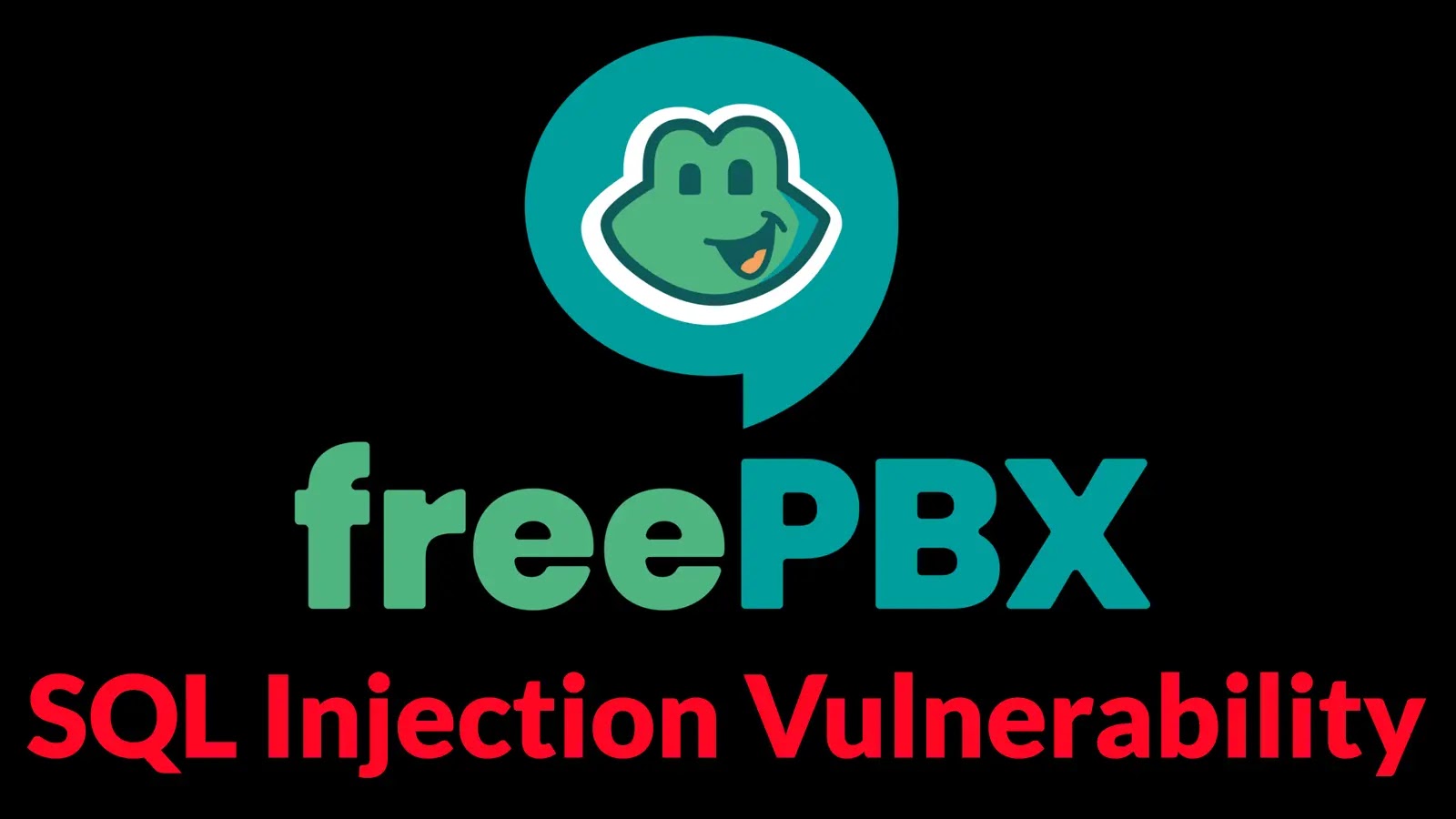
FreePBX SQL Injection Vulnerability Exploited to Modify The Database
A silent threat has been lurking in the shadows of VoIP infrastructure, poised to disrupt critical communication systems globally. A recently identified critical SQL injection vulnerability in FreePBX, a widely deployed PBX system built on the open-source Asterisk VoIP platform, presents a significant risk to organizations. This flaw allows attackers to not only manipulate database contents but also achieve arbitrary code execution, effectively granting them full control over the compromised system. For IT professionals, security analysts, and developers managing FreePBX environments, understanding and mitigating this vulnerability is paramount.
Understanding the FreePBX SQL Injection Vulnerability
FreePBX provides a web-based administrative interface for managing complex telecommunications infrastructure. This convenience, however, can become a critical weakness when vulnerabilities like SQL injection are present. The essence of an SQL injection attack lies in an attacker’s ability to insert malicious SQL code into input fields, which is then executed by the underlying database.
In this specific FreePBX vulnerability, attackers can leverage this technique to modify database entries, extract sensitive information, or even plant backdoors. The ability to manipulate the database means an attacker could alter user credentials, call routing rules, or system configurations, leading to unauthorized access, espionage, or service disruption. Critically, the reported vulnerability escalates beyond mere data manipulation, enabling arbitrary code execution – a pathway for complete system compromise.
Impact of Exploitation: From Data Tampering to System Takeover
The implications of this FreePBX SQL injection vulnerability are far-reaching. Successful exploitation can lead to:
- Data Manipulation: Attackers can alter critical configuration data, user details, and call records within the FreePBX database.
- Unauthorized System Access: By changing passwords or creating new administrative accounts, attackers can gain complete control over the FreePBX system.
- Arbitrary Code Execution: This is perhaps the most severe consequence, allowing attackers to execute commands on the underlying server, install malware, or establish persistent access.
- Service Disruption: Exploiting the vulnerability could lead to the complete unavailability of the FreePBX system, impacting an organization’s voice communication capabilities.
- Information Disclosure: Sensitive data stored in the FreePBX database, such as contact details, call logs, or authentication credentials, could be exfiltrated.
While a specific CVE number for this particular exploitation event wasn’t detailed in the immediate report, SQL injection vulnerabilities are commonly cataloged under various CVEs depending on the exact nature and discovery. For general information on SQL Injection vulnerabilities, security professionals can often refer to broader categories or specific incidents like CVE-2022-26134 (though this is not directly related to FreePBX, it serves as an example of a web application SQL injection).
Remediation Actions: Securing Your FreePBX Deployment
Proactive and immediate action is essential to safeguard FreePBX deployments against this critical vulnerability. Organizations should implement the following remediation steps without delay:
- Patch Immediately: The most crucial step is to apply all available patches and updates released by the FreePBX development team. Always ensure your FreePBX installation is running the latest stable version.
- Input Validation and Parameterized Queries: For developers, ensure all user inputs are rigorously validated and parameterized queries are used in all database interactions. This prevents malicious SQL code from being interpreted as legitimate database commands.
- Principle of Least Privilege: Limit database user permissions to only what is absolutely necessary for their function. Restrict direct access to the underlying database from the web application.
- Regular Security Audits and Penetration Testing: Conduct frequent security audits and penetration tests on your FreePBX infrastructure to identify and address vulnerabilities before attackers can exploit them.
- Web Application Firewall (WAF): Deploy a WAF in front of your FreePBX instance to detect and block SQL injection attempts. Configure the WAF rules to specifically identify and mitigate known SQL injection attack patterns.
- Network Segmentation: Isolate FreePBX servers on a dedicated network segment, limiting their exposure to the public internet and other internal networks.
- Monitor Logs: Implement robust logging and monitoring for your FreePBX system and its underlying web server and database. Look for suspicious activity such as failed login attempts, unusual database queries, or unexpected file modifications.
Detection and Mitigation Tools
Several tools can assist in detecting and mitigating SQL injection vulnerabilities, both proactively and reactively.
| Tool Name | Purpose | Link |
|---|---|---|
| SQLMap | Automated SQL injection and database takeover tool | http://sqlmap.org/ |
| OWASP ZAP | Free, open-source web application security scanner | https://www.zaproxy.org/ |
| Burp Suite Community Edition | Web vulnerability scanner and proxy for manual testing | https://portswigger.net/burp/communitydownload |
| ModSecurity | Open-source web application firewall (WAF) | https://modsecurity.org/ |
| Sucuri Web Application Firewall | Cloud-based WAF for protection against various attacks | https://sucuri.net/website-firewall/ |
Conclusion
The exploitation of the FreePBX SQL injection vulnerability underscores the persistent threat posed by web application weaknesses to critical infrastructure. The potential for attackers to modify databases and execute arbitrary code represents a severe risk to VoIP systems and the organizations relying on them. Immediate patching, stringent security practices, and continuous monitoring are not merely recommendations; they are essential for maintaining the integrity and availability of your FreePBX deployments. Security teams must remain vigilant, prioritize updates, and employ a layered security approach to defend against such sophisticated attacks, ensuring the resilience of their communication infrastructure.





